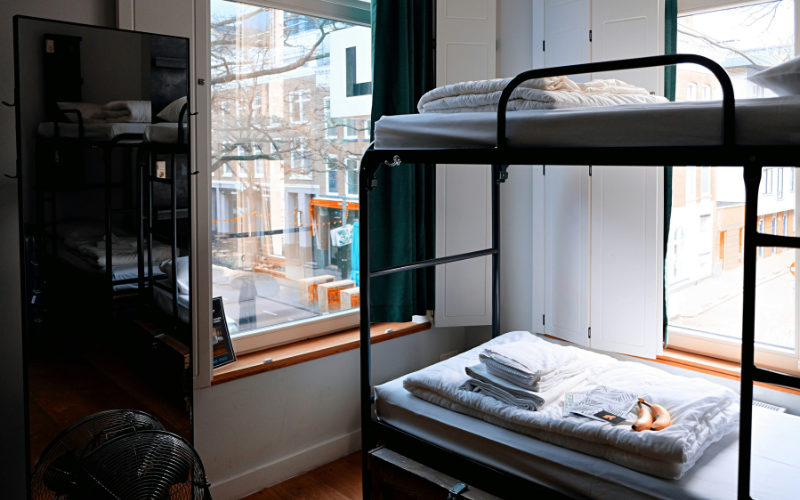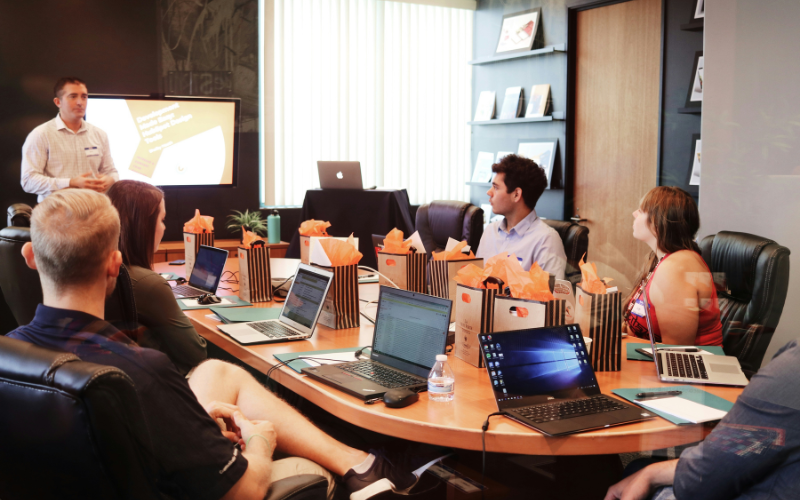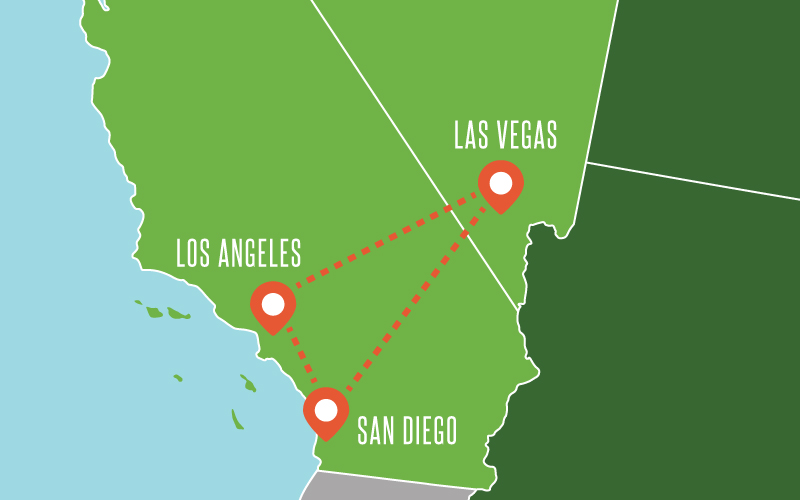What it’s Like to Open a Hostel
For some people, opening a hostel is their lifelong dream. For others, it’s something that they stumble upon while traveling and staying in a hostel. No matter how the idea comes about, there’s a lot that goes into turning a vision into something tangible.
The Importance of Planning
The planning phase is a huge component of opening a hostel. Jimmy Black and Bobby Dyer, the co-founders of ITH Hostels, shared their thoughts on what it took to take their vision of opening a single hostel into a chain of multiple locations across California and Mexico.
Black and Dyer met in 2011 while working together at USA Hostels in San Diego. It took only a few months for the two to put their heads together and come up with the idea of opening a hostel. From there, they began doing their homework. This included scouting and viewing properties throughout the year. Each time the two got close to landing a deal, they were turned down.
“It took months of being told no,” says Dyer. While some people get discouraged by that, the two kept at it. While the vision for their dream of owning multiple hostels was grand, it became clear that the best way to start was on a small scale. Some people try to start too big, adds Dyer, and that can quickly become a path to a failed business.
“We were willing to start in an 18-bed house, and that proved to be a great thing,” says Black. “We were able to fine-tune the product and then grow from there.”

Consider Scale
Starting small has its advantages. Smaller properties often require less capital to get rolling. This is especially true in a desirable location. Large properties might provide more space but sometimes come with other challenges, like not having the proper infrastructure. Financing any property can be challenging. So can the red tape like city ordinances and zoning. “It’s easy to get buried in that red tape. People can quit before they get started,” says Black.
He adds that older properties are a great place to start because they do not often require as much groundwork. There is usually more infrastructure to work with, which hypothetically leads to an easier path to creating a hospitable place for travelers.
Over the years, Black and Dyer have experienced both sides of being business owners, having attempted to open multiple properties in different locations. Many have flourished, while a few have failed. Their once-flourishing Balboa Park location in San Diego, California, was cut short because of the terms of its lease. The area was being redeveloped, and the location was forced to close.
From this experience, Dyer emphasizes the importance of understanding the difference between owning and leasing a property. Leases can work both ways, he says, offering flexibility to test out a location but also limiting the potential time frame for a property. Dyer also stresses the importance of meeting the landlord of a leased property since that relationship can make or break a location’s ability to succeed.
“It’s one thing to pick a location and think you’re just throwing bunks down in a house,” he says. “But it’s another to promote yourself and make it a business. There’s a difference between having somewhere to party and hang out and a place where people will want to sleep and live. To set yourself up for success in the long run means not just taking the shortcut. When you do that, you can end up working backward.”

Learn From Failure
Failure, however, can be one of the greatest assets while operating as a business owner. In fact, Black cites the locations that did not work out as being most instrumental in the company’s success and their ability to expand. “I got my masters in business from the ones that failed,” he says. “A lot of people can’t get past (that failure) because they can’t own up to it. They can’t dissect it and learn from it. But that’s when it becomes exciting when you can take those lessons and apply them to the ones that are up and running.”
Having other operations up and running is one way to mitigate the risk of failure. Finding the right partners and vetting quality staff to oversee and manage the locations is another shortcut that should be avoided. For any business owner, building a staff is a challenging task. Hiring is vital for not only running a business but also expanding one.
“Having a managing partner for each location has been crucial for us,” says Dyer. Hiring managers for a hostel in a desirable location can be easier for owners. But not everyone wants to or has the means to open a hostel in cities like Los Angeles, Chicago, or Miami. Hiring help for remote locations can be difficult and requires patience. Taking time to vet candidates and find those who share a similar vision and want to grow with your company, says Dyer, is one thing that the team at ITH has found to be instrumental in their success.

Add Seats to the Table
For Black and Dyer, over the years, they have brought up multiple people within the company to take on bigger roles. A few have gone from starting as a work exchange volunteer doing housekeeping to becoming a managing partner. “We were able to get to this point because we kept expanding the seats at our table. Promoting within has been a way for us to build a solid base, and it’s a great motivator for people below them,” says Black. “Those partnerships are invaluable when it comes to expanding, and you need a team to pull that off.”
With eight ITH properties throughout California and Mexico and grand visions of owning a pirate ship to sail to their various locations along the West Coast, the team at ITH is constantly seeking ways to expand. As they brainstorm for what’s ahead, Dyer and Black reflect fondly on the many nights they spent fleshing out the ideas for their hostels while living on a boat together in San Diego.
One day, it’ll all come together, and that pirate ship will be a part of the hostel chain and continue to open more doors for travelers. Hopefully, a prospective hostel owner can pick up something along the way and apply it to their grand visions for opening their first location.
Interested in learning more about ITH? Watch this video!



